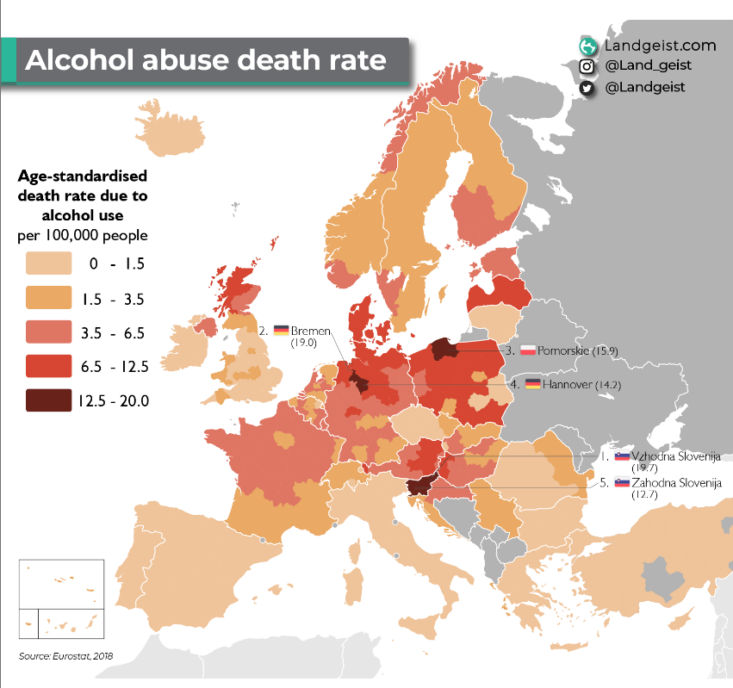[ad_1]
Social scientists use each managed and pure experiments to estimate the influence of assorted kinds of public insurance policies. One downside with this method is that it is extremely troublesome to establish the long term results of coverage, which could differ dramatically from the brief run results.
Take into account how charges of alcoholism differ in several components of the world:

1. Alcoholism tends to be extra of an issue in northern Europe than within the Mediterranean nations of southern Europe.
2. Alcoholism charges are particularly excessive amongst indigenous peoples within the Americas, Australia and the Pacific islands.
How can we make sense of this sample?
One chance is that alcoholism is least extreme in areas with the longest historical past of ingesting alcohol. Wine has been a well-liked beverage within the Mediterranean space for millennia. In distinction, indigenous peoples within the New World had little publicity to alcoholic drinks till not too long ago.
This may appear an odd instance to make use of when enthusiastic about the consequences of public coverage, as these variations had been because of cultural elements, not differing authorized programs. However this instance does illustrate that cultures evolve regularly over very lengthy intervals of time, in such a method that one group of individuals could react fairly otherwise to the provision of alcohol than one other group, even when the 2 teams at the moment face the identical authorized and financial constraints.
This reality is essential when contemplating experiments on public insurance policies equivalent to “Common Fundamental Revenue”. You’ll be able to definitely think about an experiment the place you give a gaggle of individuals a lump sum of cash. However what does that inform us about the long term influence of such a program? Suppose this system continued over many generations, till there was not a stigma related to residing your total life on UBI and placing no effort into work?
Any time we institute a everlasting new public coverage equivalent to Social Safety or federal deposit insurance coverage, we’re operating a really long term experiment with our society. We don’t understand how these packages will form attitudes and conduct over the ultra-long run, as we don’t have the persistence to run such experiments earlier than this system is instituted.
In these instances, I rely extra on my instinct about how society is prone to be affected within the very long term, and put little weight on social science experiments (lots of which fail to duplicate, even within the brief run.)
[ad_2]
Source link





